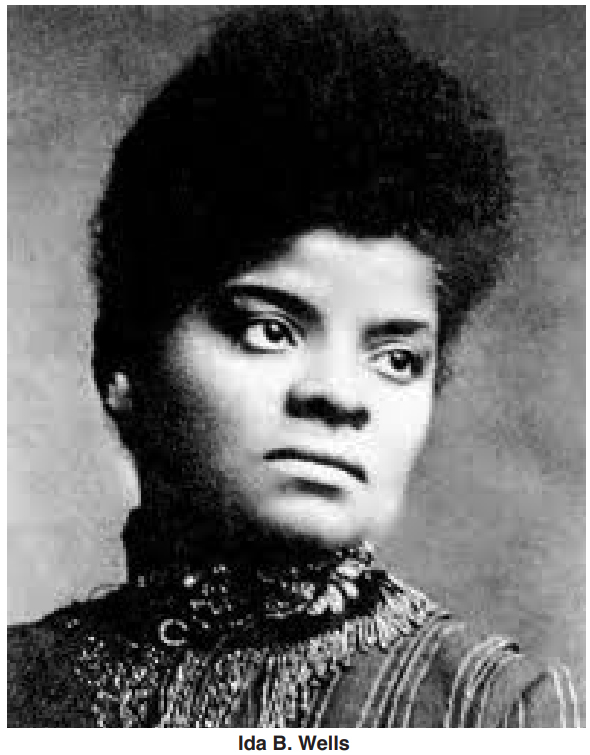March Muse: Ida B Wells, Suffragist

Disclaimer: The views and opinions expressed in this article are those of the author and do not necessarily reflect the editors' views or any agency, organization, or employer. Based on my experience, research, and knowledge, my statements are in good faith and are only for informational purposes. Please research and follow up on all claims for yourself.
Ida B Wells was snubbed one hundred and ten years ago this March, and I feel her pain. You see, all Black women were slighted at the Suffrage Parade in Washington, DC, on March 3, 1913. While we have come a long way since then, we must understand our history to avoid pitfalls and progress forward. Also, I want to acknowledge and celebrate the women who were there and actually took the brunt of the humiliation yet persevered and fought to make things better for us today.
So just in time for the inauguration of the 28th President of the United States, President Woodrow Wilson, women all over the country were preparing to convene to support women's right to vote. The Suffrage Parade was organized by Alice Paul and the National American Woman Suffrage Association (NAWSA). It attracted an estimated 5,000-8,000 suffragists nationwide, including popular suffragists such as Susan B. Anthony, Elizabeth Cady Stanton, and Lucy Stone. This parade was an important moment in the history of the women's suffrage movement in the United States; it helped to raise public awareness of the cause and increase support for women's right to vote.
Now imagine Ida B. Wells, a Black woman, and the women in the suffrage organization she found in Chicago, the Alpha Suffrage Club, preparing to head to Washington to participate in the parade. According to historical records, a train journey from Chicago to Washington D.C. in 1913 would have taken approximately 17 to 20 hours. As they traveled, the women would have been subjected to "colored" areas on the train which were often crowded, used by those who smoked, and lacked the amenities of the "white" sections. Also, once in Washington DC, a segregated city at that time, they would have only been able to use public accommodations labeled "colored" or done without them. So, they faced all kinds of adversity just to get there.
When they started lining up on the day of the parade, the Black women were asked to march at the end or not participate instead of being allowed to walk with their designated cities. The parade organizers did not want to offend the White women from the South. Ida B. Wells, a journalist famous for exposing the lynching of Black people in America, a civil rights activist, and a suffragist who fought tirelessly for the rights of Black people and women, refused to accept that. So as the parade began, Ida and the women of the Alpha Suffrage Club, who were standing on the sidelines, merged in with the Chicago delegation despite being asked not to. She understood the unique challenges Black women endured and worked to make sure our voices were heard. She had not traveled that far to be sidelined.
In her writings and speeches, Ida discussed the importance of Black women working together to address the issues affecting our communities. She recognized that our identities as Black women are complex and that we must fight for justice on multiple fronts, including racial justice, gender equality, and economic justice. Ida also recognized that mainstream society often ignored or minimized Black women. She once said, "The way to right wrongs is to turn the light of truth upon them." As Black women, it is up to us to shine a light on the injustices we face and to demand change, and she did that.
Because of the work of Ida B Wells and women like her, things are better for Black women and all women today, but we must continue to fight for our rights and dignity. Women's rights have taken some hits over the past few years, and we must continue to work together to create a more just and equitable society for all.
Ida was something else y'all, and I am going to enjoy writing about her as my muse this month.
Sophia Brewer (M.L.I.S.) is Collection Development and Serials Librarian, Grand Rapids Community College; Co-President of the Greater Grand Rapids History Council; member of the Grand Rapids Study Club and serves on the Grand Rapids Public Library, Board of Library Commissioners (Elected 2016-2021). She is a former Head of Programs, Grand Rapids Public Library and former Branch Manager, Madison Square Branch, Grand Rapids Public Library Congresswoman

Tagged in: